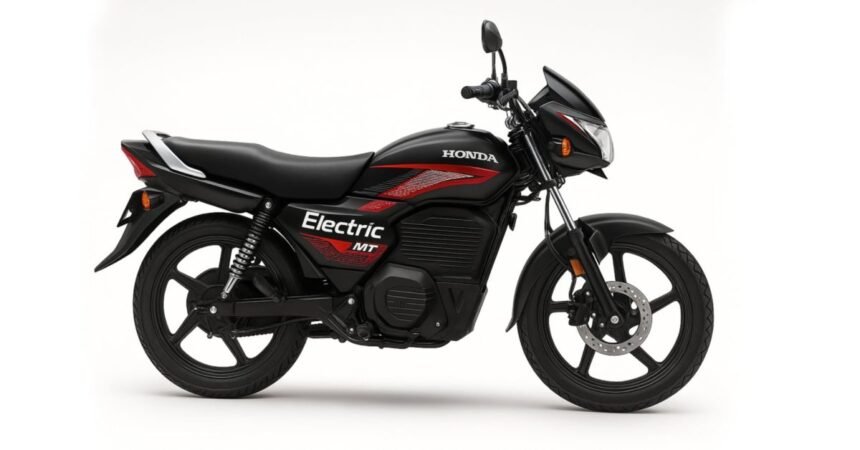Honda’s Electric Motorcycle Patent Reveals Affordable Urban Mobility Solution
Honda’s latest patent filings have unveiled their plans for an ultra-affordable electric motorcycle that aims to revolutionize the nascent electric motorcycle market. The design is centered around the Honda Shine 100, a popular commuter bike in India, which has been reimagined in electric form to cater to the future of urban mobility.
According to Cycle World’s Ben Purvis, the patent sketches showcase a bike that utilizes the sturdy frame and chassis mounting points of the Shine 100 to accommodate an electric motor and compact battery setup. The mid-motor drives the rear wheel via a single-speed reduction gear and chain, mimicking the layout of the original gasoline-powered commuter bike. Instead of a traditional fuel tank, the design incorporates two lithium-ion battery packs positioned on either side of the spine frame, fitting seamlessly into the existing geometry.
What sets this electric motorcycle apart is not just its clever packaging, but also the platform it is based on. By leveraging the proven Shine chassis, Honda can reduce development costs, manufacturing complexity, and market price significantly. This strategic move allows Honda to streamline the production process and bring the electric motorcycle to market in a shorter timeframe.
The design retains styling elements reminiscent of the Shine 100, including a circular protrusion that could potentially house a charging port in place of a traditional gas cap. The power output of the electric motorcycle is expected to be comparable to the Shine 100, with a top speed of around 80-85 km/h (50-53 mph) to cater to commuter needs.
The patent images also reveal a ducted cooling system created by the battery packs, ensuring efficient heat dissipation without the need for active cooling systems. This design choice not only enhances the bike’s efficiency but also contributes to its overall simplicity and reliability.
Honda’s electric motorcycle strategy extends beyond this affordable model, with the recent launch of the EM1 e: and Activa e: scooters targeting a broader market segment. The Shine-based electric bike is poised to appeal to a new generation of electric riders in developing regions like India, where cost-effective transportation solutions are in high demand.
While Honda has not disclosed a timeline or pricing for the electric motorcycle, the patent filings offer a glimpse of hope for fans of the brand’s electric endeavors. If successfully scaled, this model could mark a significant milestone as the first mass-market electric motorcycle from a major OEM, with a price point likely below the $5,000 mark typically associated with commuter electric motorcycles.
In conclusion, Honda’s electric motorcycle patent reveals a practical and cost-effective solution for urban mobility, setting a new standard for affordability in the electric two-wheeler market. With a focus on simplicity, reliability, and accessibility, this innovative design is poised to make a significant impact on the future of electric transportation.







